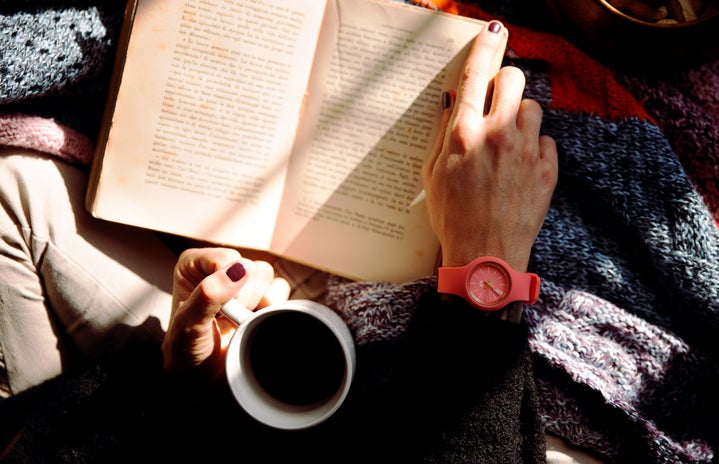January 19, 2021, marked the first day of the last semester of my undergraduate life. In just a few short months, I will graduate and — hopefully — begin working on my career in a full-time position. As I’ve reflected upon the last couple of years, there are a few life lessons that have begun to stick out to me. One of which is the value of having hobbies that you care about.
In a writing class I took junior year, there was a moment where we all went around the room to share what we did outside of class or work. As the class hesitated to answer this seemingly simple prompt, a few individuals — myself included — began to laugh as we realized that we didn’t do much besides focusing on classes and managing a part-time job or two in order to attempt to pay for books or tuition. Maybe we had a few extra-curricular activities or volunteering responsibilities, but these roles seemed to be framed as resume-builders or experiences to inform their later job prospects. It was a humbling moment to think that our lives were consumed by studies and extra commitments, but it felt as though these choices were somehow outside of our control. Sure, you choose your major, but everything that entails the decision to pursue a degree does not always feel as if it is under your control. To finish this anecdote, everyone was eventually able to find some answer about their hobbies, but the consensus seemed to be that everyone wished they had more time to dedicate to these areas of life.
Fast-forward a couple of months, to March 2020, wherein college students around the globe largely experienced the cancellation of college-life as we knew it. The COVID-19 pandemic drastically and quickly changed the life that I had grown to expect. Maybe I would spend nights working on writing essays until 2 a.m., but I could also count on going to concerts or going out to restaurants with friends to celebrate the end of finals week. As the pandemic settled in, I noticed many social media trends of people trying new hobbies. People were baking bread, making whipped coffee, learning TikTok dances, trying out at-home workouts, and getting outside more frequently.
Aside from the pains and horror of the pandemic, I found it heartwarming to see people reconnect with their artistic and creative selves. Once I only had online classes to fill my day, I began to have more freedom to spend the rest of my day however I wanted. I could read, paint, play guitar, or try out new recipes for dinner. These are all hobbies I have loved throughout my life, but I never was able to find a balance between these activities and my schoolwork and other commitments which always seemed to take priority. I’m not saying that classwork and jobs outside of school shouldn’t be your first priority — as a student, it makes sense for your energy to be focused on classes — but the work-life balance I was able to explore was so refreshing as it finally became a possibility.
Despite the unique challenges of the fall semester, it was a semester that allowed me to focus on more than just school. I went on a few hikes and walks, I baked treats for my roommate and me, and nights out with friends were replaced with virtual game nights. Although these are all options that existed before the pandemic, I have felt more encouraged to explore some of these interests throughout the past several months. As everyone was ordered to stay home, it seemed as if we could all commiserate and explore different ways to pass the time by reconnecting with the hobbies we may have neglected in favor of the hustle and bustle of our former everyday lives.
In the United States, our individualistic culture places a high value on personal success and achievement. Yet, as we have lived through almost a whole year of disruptions to our normal schedules, I think we can begin to push back on these ideals. Success and ambition can be great, but at what cost? In a 2019 study, psychologists found that “rather than success leading to happiness, it’s actually the other way around — happiness actually leads to career success.” Being able to provide your own happiness, rather than rely on career success, seems to be the recommended course of action.
Over our extended winter break, I noticed this theme pop up in a couple of art mediums. First, I read Paulo Coehlo’s “The Alchemist” — a novel that focuses on young Santiago’s dream of discovering treasure at the Egyptian pyramids. This dream is called Santiago’s “Personal Legend” — it is his reason to live and it is his main passion. No matter what challenges are thrown in his path, Santiago remains true to himself and fully dedicates himself to realizing this Personal Legend. Second, I watched Pixar’s newest movie, “Soul,” which tells the story of Joe Gardner whose soul has been separated from his body, and he wishes to reunite the two as he is about to make a break in his career as a jazz pianist. Joe Gardner is eventually tasked with mentoring 22, a “lost soul” who has never found her spark that would mean she is ready for life on Earth. Although the movie focuses on finding one passion that gives your life meaning, its ultimate message is that life is simply worth living for no other means to an end except living. There is inherent value in living through everyday life — your life is worth living for the sake of living.

Our hobbies can bring incredible depth to our lives, and no matter what happens in the future, I hope that we can all learn from these messages from the pandemic to build more balance into our everyday lives.



